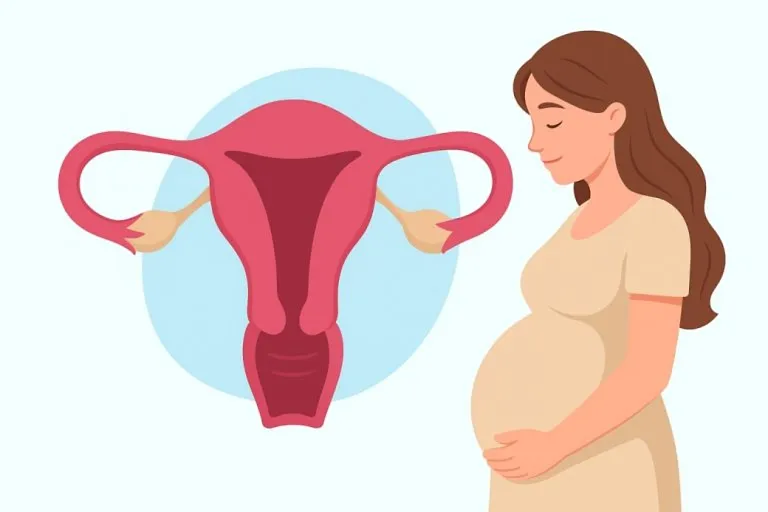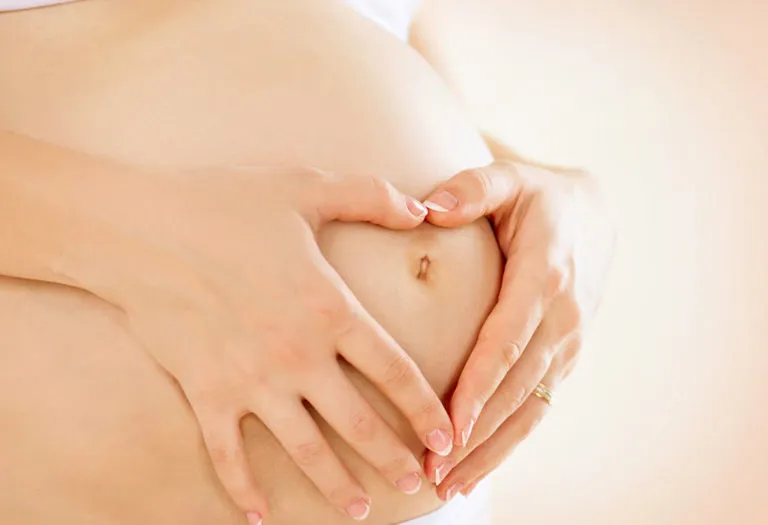Irritable Uterus While Pregnant: Causes, Symptoms and Treatments
Now that you’re pregnant, you are likely to experience untimely contractions throughout your pregnancy. While most women feel that ‘contractions’ are experienced during labour, if you’ve been pregnant for a while now, you know that those untimely cramps that you experience are mild contractions. You know exactly when they occur, how often, and what makes the pain manageable. But when these contractions become frequent and regular, they could be a sign of an irritable uterus. What is an irritable uterus while pregnant, and how does it affect pregnancy? Is it life-threatening? Join us as we navigate through each and every nook of this topic and find the relevant information about it.
What Is an Irritable Uterus?
An irritable uterus is a condition in which the Braxton-Hicks contractions become more regular or frequent. You may find the contractions not calming down despite getting adequate rest and hydration. Some mothers get worried about irritability in the uterus and assume that they may be going through pre-term labour, but that’s not the case. However, as per a study published in the American Journal of Obstetrics and Gynecology, the chances of preterm labour in women with uterine irritability are not as frequent as in patients with other high-risk factors (1).
How Common Is It During Pregnancy?
If you have an irritable uterus during pregnancy, you’re bound to worry, but what you must know that this condition is pretty common and harmless. This condition is a rather common occurrence among pregnant women, especially if they’re stressed or severely dehydrated. The contractions go away on their own with time and don’t lead to preterm labour. However, if not addressed, in rare cases, they might develop into real uterine contractions, which may lead to early delivery, though the chances of it are extremely rare.
Causes of Irritable Uterus During Pregnancy
There are no specific causes for an irritable uterus, but one may experience uterine irritability if they are stressed or dehydrated.
Symptoms of Irritable Uterus in Pregnancy
Here are some common symptoms to watch out for if you suspect that you’ve got a case of irritable uterus:
- Pain in the back and stomach
- High-stress levels
- Dehydration
- Frequent and more painful contractions in the uterus
- Tightness in the belly that worsens when standing up or walking (accompanied by pain lasting for over an hour)
Diagnosis of Irritable Uterus
If you think you’ve got a case of an irritable uterus, your healthcare provider will recommend the following tests:
- An ultrasound scan to check the uterus and cervix’s length
- Lab test for sampling and analysing vaginal secretions
- Wearing a pressure-sensitive belt that monitors the frequency, duration, and intensity of your uterine contractions
How to Treat Uterine Irritability at Home?
The exact cause of the irritable uterus is unknown in most cases and hasn’t been extensively studied yet. However, based on the symptoms exhibited, there are a few ways to calm them. Here’s what you can possibly do to treat it naturally or ease it until it settles down:
- Get some rest – Make sure you’re getting at least 8 hours of sleep. Not getting enough sleep will leave you feeling cranky and exhausted. Lack of sleep increases stress levels in the body, which could worsen the contractions, and that’s not what you want as it may result in uterine irritability.
- Have smaller but frequent meals – To reduce the irritation, have smaller meals but often. Go for nutritious foods and do not eat anything processed. Grass-fed meats and non-GMO organic foods are the best. Plus, these will also help you meet your daily dietary iron and folate intake requirements.
- Avoid stress – Avoid heated arguments or unpleasant conversations with anyone. Cut out all sources of stress and relax. Meditating, drawing and journaling are some activities you can try to calm down and ease the pain.
- Take magnesium supplements – Magnesium has a calming effect on the body, so you can consider taking it. However, check with a healthcare provider before taking this. Oral magnesium supplementation is advised for women at higher risk of developing preterm labour (2).
- Do not lift heavy objects – Avoid lifting heavy objects as it could increase your contractions.
- Eliminate caffeine – Do not take caffeine in any form if you are experiencing uterine irritability. This is because caffeine is a stimulant and can trigger more contractions and thus worsen your condition.
- Lie down on one side – Lying down on your left-hand side seems to calm the contractions and relieve pain temporarily. If you’re facing sudden and sharp pain, this may help you relax a little.
- Empty your bladder – Don’t hold it in, and make sure you empty it before going to bed. Having a full bladder can put pressure on your cervix and worsen the contractions.
How to Prevent Uterine Irritability?
There are a few ways in which you can prevent uterine irritability:
- Make sure you are getting enough sleep and rest. Stay in bed and do not move around too much.
- You can take prescription drugs to prevent these contractions, but only after approval by the doctor.
- Take it easy, relax and not worry about it too much. Most of the times, it goes away on its own.
When to Consult a Doctor?
For starters, we encourage keeping a record or log of your contractions before approaching your healthcare provider or doctor. Note down the times these contractions occur, how often, and the length of these. Get in touch with your doctor or healthcare provider if you notice any of the following signs:
- Your amniotic fluid is leaking and doesn’t seem to stop.
- You get more than 6 to 8 uterine contractions in an hour.
- Bleeding in the vagina and increasing pain.
- Lack of fetal movements or a decrease in those movements .
- Contractions that become more painful every 5 to 10 minutes.
FAQs
1. What is a uterus?
A uterus is a pear-shaped, hollow, muscular organ in your pelvis, located between the rectum and bladder. It plays a key role in menstruation, fertility, and pregnancy. Also known as the womb, it nourishes and houses a fertilized egg until the fetus is ready for delivery (3).
2. What are some common triggers of irritable uterus?
A full bladder, stress, dehydration, constipation, urinary tract infection, lifting heavy objects, and excessive fetal movement are some common reasons that trigger an irritable uterus.
3. What does an irritable uterus while pregnant feel like?
An irritable uterus causes frequent, regular cramps similar to menstrual cramps but with more intensity. These contractions can feel like strong Braxton Hicks contractions, which are irregular in duration and intensity, often leading pregnant women to mistake them for real labour contractions (4).
4. How can I deal with the symptoms of uterine irritability?
To deal with an irritated cervix in early pregnancy and an irritable uterus during pregnancy, you can stay hydrated but keep your bladder empty, avoid lifting heavy items, avoid any stress on the pelvis, have sufficient sleep, avoid caffeine, and take magnesium supplements (only after prescribed by the doctor).
5. How to differentiate between irritable uterus pain and real contractions?
If your contractions become more painful or start occurring at regular intervals, then you might be in actual labour and should go to the hospital immediately. Additionally, if your water breaks or you notice any fluid or blood leakage, contact your healthcare provider right away without any delay (5).
Uterine irritability is pretty common during pregnancy is pretty common and should not be a cause of concern. But if you experience anything unusual, like the signs mentioned above, a trip to your doctor to will put your mind at rest.
References/Resources:
1. Roberts. W. F, et al.; The irritable uterus: A risk factor for preterm birth?; American Journal of Obstetrics & Gynecology; https://www.ajog.org/article/0002-9378(95)90102-7/abstract#articleInformation; January 1995
2. Okunade. K. S, et al.; A Study on the Association between Low Maternal Serum Magnesium Level and Preterm Labour; Advances in Medicine; https://onlinelibrary.wiley.com/doi/10.1155/2014/704875; April 2014
3. Uterus; Cleveland Clinic; https://my.clevelandclinic.org/health/body/22467-uterus
4. Raines. D. A, Cooper. D. B; Braxton Hicks Contractions; StatPearls Publishing; NCBI; https://www.ncbi.nlm.nih.gov/books/NBK470546/
5. How to Tell When Labor Begins; ACOG; https://www.acog.org/womens-health/faqs/how-to-tell-when-labor-begins
Also Read:
Small Uterus and Pregnancy
Uterus Abnormalities in Pregnancy
Bicornuate(Heart Shaped) Uterus
Gastric and Bloating during Pregnancy
Irritable Bowel Syndrome (IBS) while Pregnant
Was This Article Helpful?
Parenting is a huge responsibility, for you as a caregiver, but also for us as a parenting content platform. We understand that and take our responsibility of creating credible content seriously. FirstCry Parenting articles are written and published only after extensive research using factually sound references to deliver quality content that is accurate, validated by experts, and completely reliable. To understand how we go about creating content that is credible, read our editorial policy here.


































